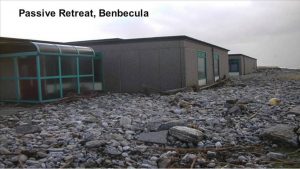
Shoreline management planning in Northern Ireland
Prof J. Andrew G Cooper (Ulster) Recent storms on the Northern Ireland coast have caused widespread flooding and coastal erosion. Erosion threatens buildings, roads, railways and other infrastructure, but is also a vital natural process that sustains beaches, and is essential to maintenance of a healthy coastal ecosystem. Societal responses to erosion include: (a) hard and soft protection works; (b) realignment or removal of infrastructure; or, (c) do nothing. Each has implications for the built and natural environment. Unusual among western European countries, Northern Ireland has no strategic approach to shoreline management. This means that there is much uncertainty regarding

Marine planning for the blue economy: small island: big challenges
Dr Heather Ritchie and Prof Greg Lloyd (Ulster) The island of Ireland, though physically small, faces big institutional challenges for the delivery of a sustainable blue energy future. Challenges stem from separate governance regimes across the island; with several government departments controlling functions across planning and regulation. Marine Spatial Planning (MSP) is established as an integrated policy based approach to the regulation, management and protection of the marine environment (Claydon, 2006). MSP will play a major part in the European Union’s vision for the ‘blue economy’, and will be vital in enabling renewable technologies to shape the future energy mix

Landscape Planning for Sustainable Development
Mrs Emily Smyth (Ulster) The European Landscape Convention commits the Northern Ireland government since 2007 to recognising landscape as a common resource to which everyone has rights and responsibilities for culture, quality of life and individual and social wellbeing, and economic activity; that changes in the economy accelerate landscape transformation; and that cooperation in protection, management and planning of landscape is important. Research undertaken for the Ministerial Advisory Group for Architecture and the Built Environment in Northern Ireland (MAG) demonstrates revision of the 1999 Northern Ireland Landscape Character Assessment is crucial, and that Landscape Character Assessment as the basis for



